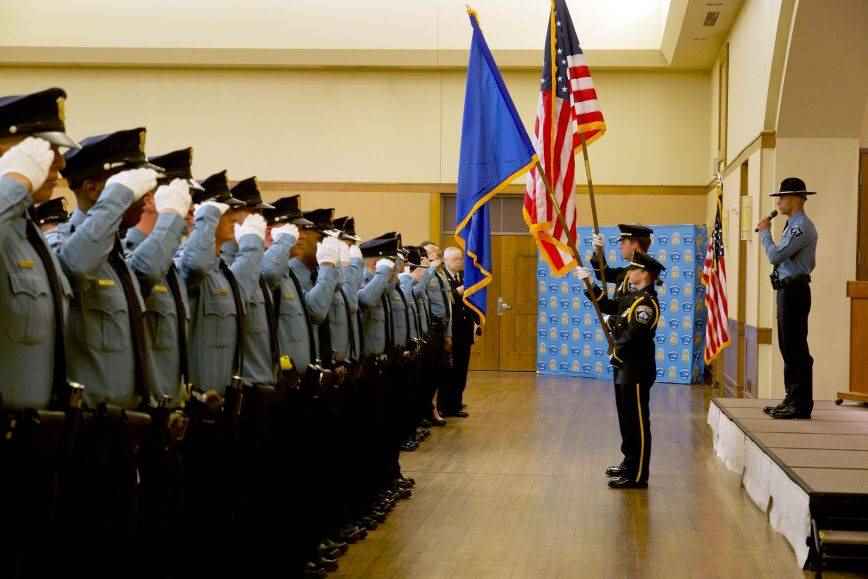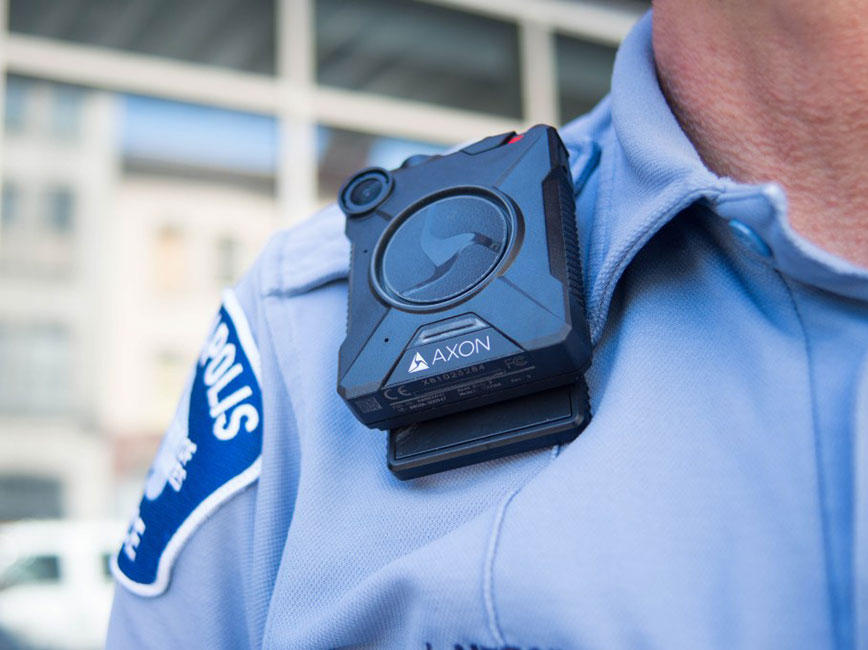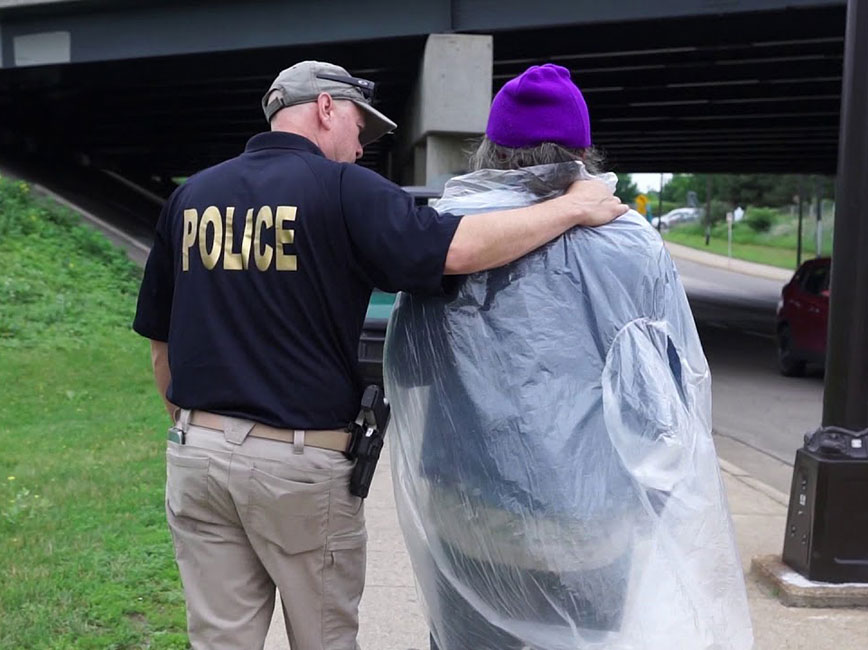Public safety
MPD Reforms Since June 2020
New policing policies and changes
City Attorney role in discipline process
In late December, Mayor Frey announced new internal disciplinary processes and measures for MPD, adding an additional layer of accountability to help enhance misconduct investigations. To better ensure the quality of information available to Chief Arradondo at the time of disciplinary decisions, an Assistant City Attorney will be embedded on the front-end of police misconduct investigations. This added capacity will help determine both whether there are areas of investigation that should be further pursued or if available evidence relating to allegations of misconduct should be further analyzed. These additional layers of accountability will help improve the likelihood of disciplinary decisions being upheld in arbitration. The Assistant City Attorney will also provide expert legal advice to the Chief at the time of disciplinary decisions, adding capacity and resources to receive up-to-date information and legal counsel. Lastly, the MPD training unit will also work with the City Attorney’s Office to develop training materials and curricula as part of the continued push to align department training with the values of accountability and professionalism in service.
MPD recruitment priorities
In February, ahead of a historic push for recruiting new officer to the Minneapolis Police Department, Mayor Frey announced new recruitment priorities as part of a wholesale effort to bring in community-minded individuals. Throughout every level of the hiring process, greater weight is to be assigned to applicants who have experience in social service and reside in the City of Minneapolis, helping ensure the MPD is better embedding Minneapolis’ values throughout its recruitment and hiring practices. The changes also include assigning greater weight to volunteer experience, and both educational and on-the-job experience in social service, mental health work, and substance use disorder counseling. The department will also emphasize degrees in Criminal Justice, Social Work, Social Sciences (Psychology, Sociology, Criminology), Counseling, and other related fields. These measures underscore Mayor Frey’s continued push to instill Chief’s values in department practices and City’s commitment to community relations.
Traffic enforcement reforms
Mayor Frey and Chief Arradondo announced in August 2021 another series of reforms in ongoing efforts to create a more just and accountable system of community safety and reduce racial disparities in traffic enforcement. Minneapolis Police Officers will no longer be conducting pretextual stops for offenses like expired tabs, an item dangling from a mirror, or an expired license. In addition, the City Attorney’s Office will stop prosecuting tickets for driving after suspension when the only basis for the suspension was a failure to pay fines or fees and there was no accident or other egregious driving behavior that would impact public safety.
New critical incident standards
In June 2020, Mayor Frey and Chief Arradondo announced new policies tightening rules for officer body worn cameras. The new policies prevent Minneapolis officers involved in critical incidents – including the use of deadly force – from reviewing body camera footage prior to completing an initial police report for the critical incident.
The updated policies are designed to better capture officers’ perceptions and factors believed to exist at the time an officer acted. The policies also provide clearer direction to supervisors regarding immediate on-scene communications, remove past barriers on such communications, and clarify time requirements for reporting.
Stronger de-escalation reporting
In July 2020, Mayor Frey and Chief Arradondo moved forward with changes to the MPD's force reporting requirement that place a stronger emphasis on de-escalation. The new policy expands the scope for force reporting requirements across the board. It also mandates more detail and specifics in how officers report force used. For the first time in the department's history, the new policy requires documentations of attempts to de-escalate in all police reports, even in those where force was not used.
‘No-Knock’ Policy
In the fall of 2020 Mayor Frey and Chief Arradondo marked another first for the department, issuing an official policy governing the use of unannounced or “no-knock” warrants in the city of Minneapolis. Under the new policy, MPD officers will be required to announce their presence and purpose prior to entry, outside of exigent circumstances like a hostage situation. The new policy adds transparency and shared expectations for community and codifies best practices in the department’s Special Weapons and Tactics (SWAT) Unit.
Victim-Centered Sexual Assault Investigation Policy
Shortly after the Minnesota Attorney General and State leadership issued for local law enforcement to incorporate in sexual assault investigations, Mayor Frey and Chief Arradondo swiftly and fundamentally reshaped MPD policy. The mayor and chief issued a new policy in 2019 that incorporates a victim-centered and trauma-informed approach to the department’s response and investigations of sexual assault. The new guidance prioritizes the safety, privacy and well-being of the victim and aims to create a supportive environment in which victims’ rights are respected.
The policy incorporates the perspectives of detectives, the County Attorney’s office and community advocacy groups and includes protections for individuals reporting sexual assault from minor charges, such as underage drinking and prostitution. It also allows for acceptance of sexual assault reports from other jurisdictions and spells out the importance of investigators maintaining regular contact with the victim regarding the process of the investigation so that the victim does not believe it is futile or demeaning to file a report. The policy employs trauma-informed interview techniques such as prioritizing conducting interviews in person, recognizing that victims of trauma may have difficulty remembering incidents in a linear fashion, and allowing the victim to share details at their own pace.
Warrior-Style training ban
The mayor believes that public safety and improving police accountability are mutually dependent goals. That’s why in the second year of his administration, he issued a first-in-the-nation ban on “warrior style” training for officers both on and off duty. Warrior style, fear-based training teaches law enforcement to approach members of the public as threats and runs counter to the mayor and chief’s vision for the department and policing.
Use of force overhaul
In August 2020, Mayor Frey and Chief Arradondo announced an overhaul of MPD’s use of force policy to make it as stringent as possible under state law. The new policy requires that officers use the lowest level of force needed to safely engage a subject and that officers first consider all reasonable alternatives before using deadly force.
The changes also include revisions to what constitutes the use of force to include the threat of force and prohibiting behavior that incites or escalates a situation. Also included was a ban on shooting at moving vehicles (with limited exceptions). Additional policy changes will be taking place.
Public health-based approaches to safety and policing
Working alongside the Police Chief and Hennepin County, the Mayor aims to change both narrative and practice in the Police Department — affirming the Chief’s core principles of trust, accountability, and professional service at the center of every engagement.
The Mayor has led new initiatives and adopted approaches to reducing violent crime and increasing safety by relying on a public health lens. These initiatives are driven by the Office of Violence Prevention and depend on work across sectors with the goal of immediate, positive impact on public safety, and provide interventions to interrupt patterns of violence of harmful behavior in the community.
Group Violence intervention
The Group Violence Intervention (GVI) initiative provides intervention for men who have been identified by frontline law enforcement as part of violent street groups in Minneapolis. Participants hear a clear message from law enforcement, social service providers, and community leaders. The core message is that the violence must stop, that law enforcement is doing things differently, and that law enforcement and the community want participants and their friends and associates safe, alive, and free (out of prison). The GVI three-prong approach involves law enforcement, service providers, and community members. It's modeled after National Networks for Safe Communities at John Jay College of Criminal Justice. The pilot launched in 2017, with group-member involved non-fatal shootings for the period observed dropped 55 percent compared to the same period in 2016. Through his proposed budgets, the Mayor has secured funding to expand GVI to more Minneapolis neighborhoods.
Next step hospital-based intervention
Next Step is a hospital-based violence intervention program that focuses on youth and young adults, age 12 - 28, who are victims of violent assault (gunshot, stabbing, etc.) and being treated at HCMC or North Memorial hospitals. The program goal is to reduce the rate of violent re-injury and re-hospitalization for youth and young adults, and provide supportive, positive development and holistic healing for victims and families affected by violence by interrupting the cycle of recurrent violence. Next Step has served over 150 participants since launching in 2016.
MinneapolUS Street Outreach Initiative
The Mayor and Council allocated $2.5 million of ongoing funding to the Office of Violence Prevention to fund the MinneapolUS Strategic Outreach Initiative.
Through the initiative, trusted community members work as outreach workers on neighborhood-specific teams. They detect potentially violent events and use informal mediation, non-physical conflict resolution, and interruption expertise to de-escalate situations before they become violent. They also work to change community norms, mobilizing entire communities to reject violence and healing neighborhoods through activities like awareness building, community gatherings and peace walks. And, they connect people to jobs, housing, mental health and chemical dependency services, and other resources and supports. By identifying and interrupting conflicts and working to promote community healing, the initiative is intended to break the “contagious” aspects of violence.
This approach is rooted in the power of our local communities. At the same time, it draws from evidence-based strategies like Cure Violence, which has been effectively implemented across the globe. In other cities where Cure Violence has been implemented, studies show strong results.
Officer wellness
For the first time in department history, at the request of Chief Arradondo, Mayor Frey committed funding for 2019 to develop a health and wellness program for officers. Positive police-community relations cannot be achieved if our officers, who experience daily trauma, cannot get the care they need and deserve.
The health and wellness program will be the first of its kind and provide officers supportive resources to cope with the invisible challenges of their work.
Community policing and training
In 2015, the Department of Justice selected Minneapolis as one of six cities to participate in the National Initiative for Building Community Trust and Justice. Using evidence-based research, the program uses strategies to ensure that justice is part of every interaction. Procedural Justice is based on four principles:
- Treating people with dignity and respect
- Giving citizens 'voice' during encounters
- Being neutral in decision making
- Conveying trust
Chief Arradondo has structured both policy and leadership so that procedural justice is included in everything we do.
Minneapolis police officers now also complete several mandatory and ongoing trainings. Trainings ranging from implicit bias, to de-escalation, to crisis intervention, are now part of the required curriculum, and are necessary in giving officers the tools they need to succeed. Given the opioid epidemic, all responding officers are additionally now trained in opioid response and equipped with naloxone – the anti-overdose medication.
Enhancing police community relations does not end with training. To improve outreach and engagement, we have instituted Community Navigators and the Community Engagement Team to work directly with residents of Minneapolis to create and maintain more personable relationships.
Contact us
Office hours
8 a.m. – 4:30 p.m.
Monday – Friday
Mailing address
City Hall350 S. Fifth St., Room 331Minneapolis, MN 55415
Temporary office location
250 S. Fourth St., Room 510Minneapolis, MN 55415




